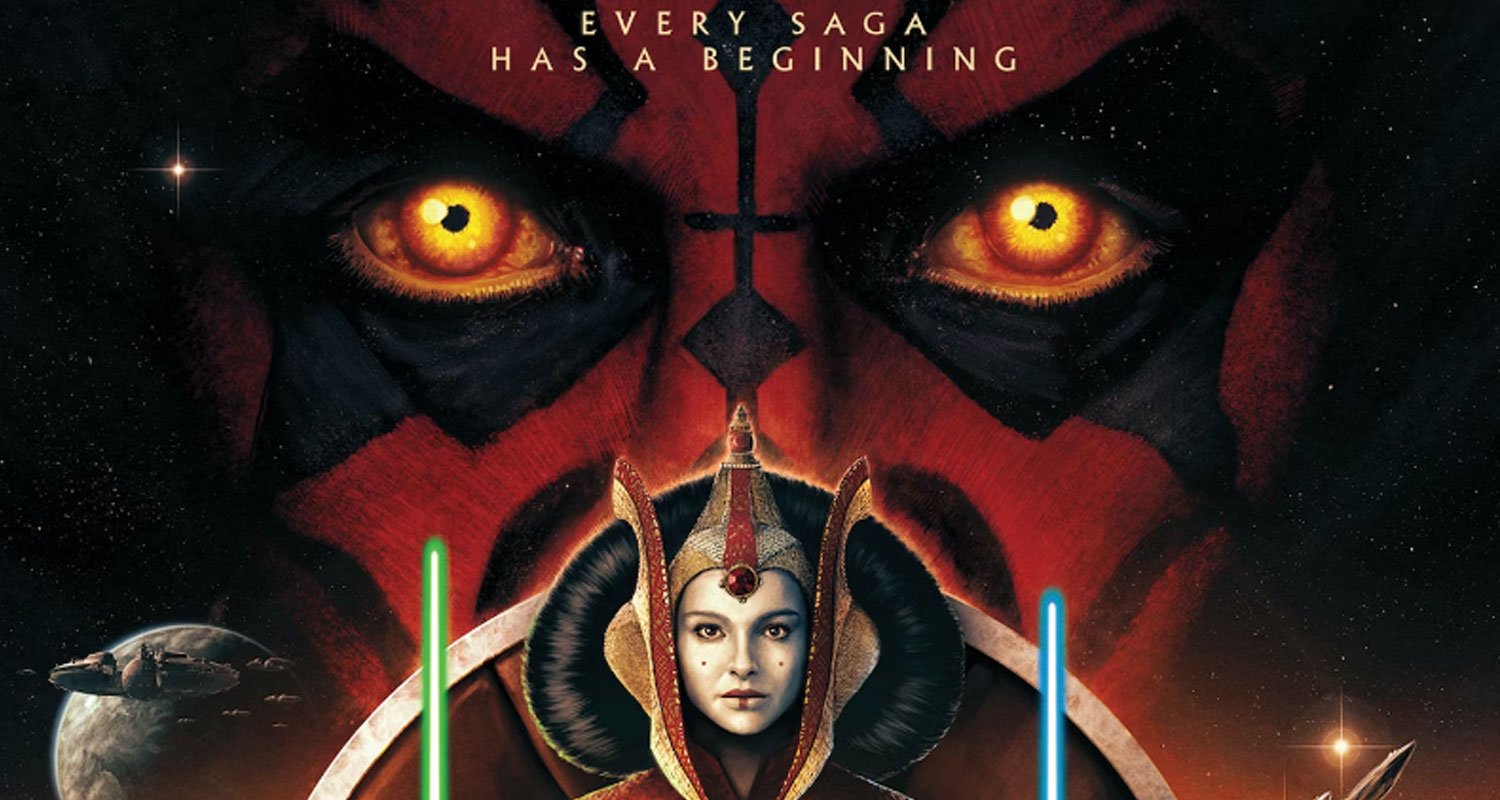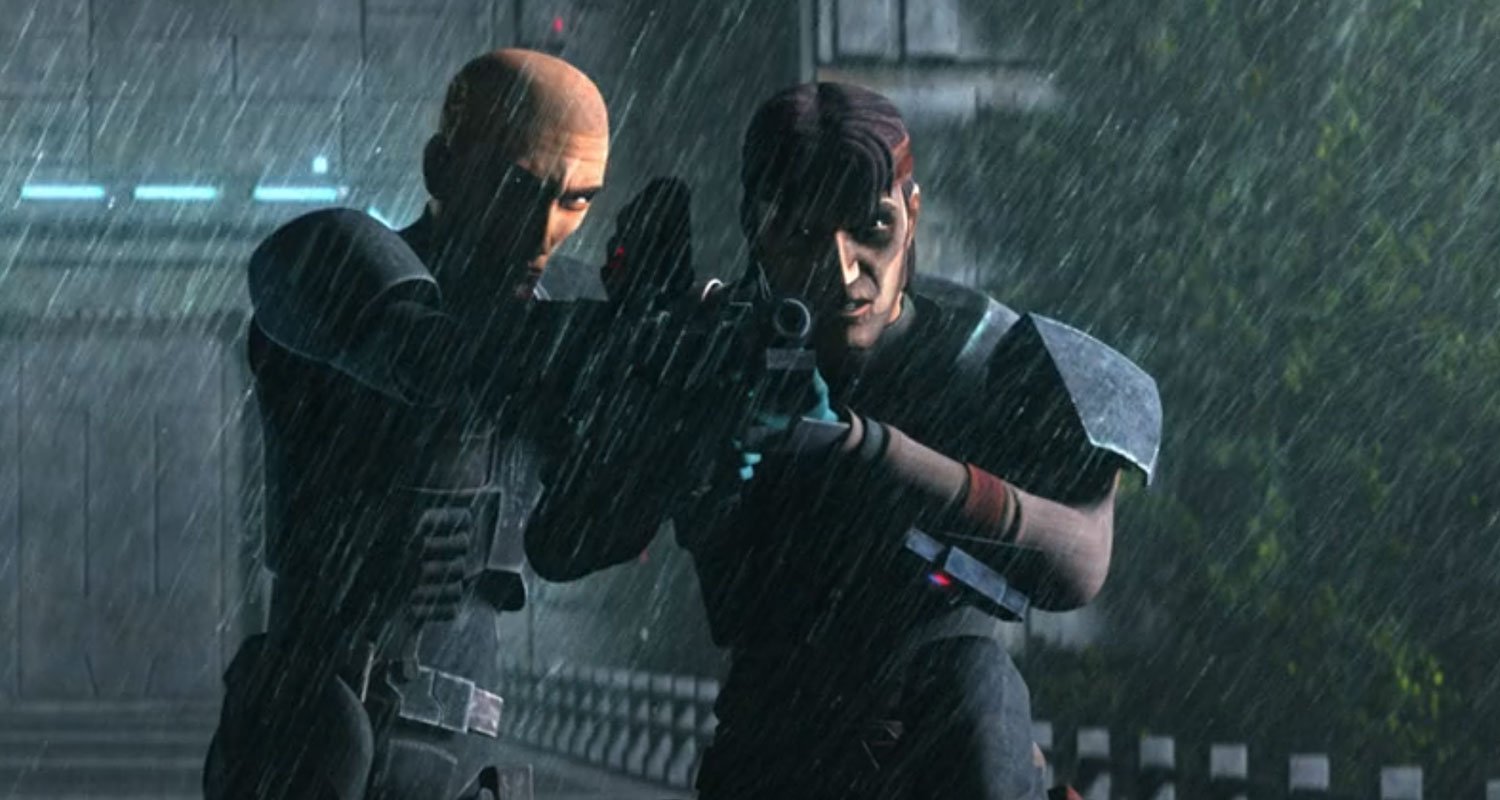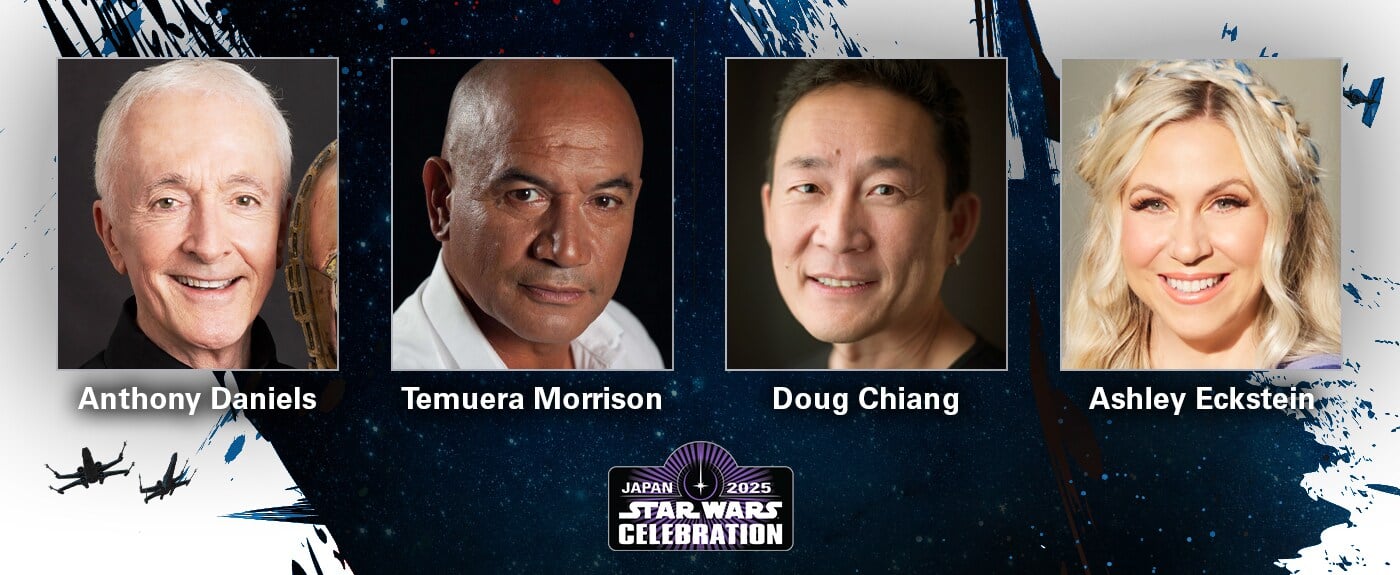Movie Review – ‘BlacKkKlansman’
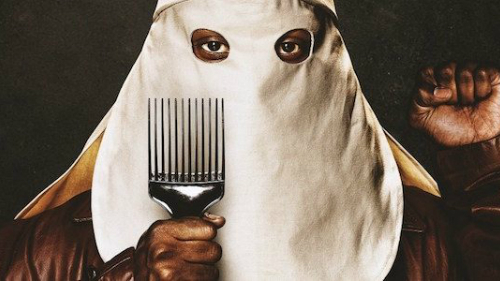
The crazy true story of some fo’ real, fo’ real sh*t.
Spike Lee is known for making controversial movies. Or at the very least, movies that incite conversation on real issues. I enjoy that Lee is bold enough to talk about topics that no one else will cover in a movie. I may not like his execution on every film – like Chi-Raq – but at least he uses his medium to say something. His latest film, BlacKkKlansman, is no different.
In the early 1970s, Ron Stallworth became the first African-American detective to serve in the Colorado Springs Police Department. Determined to make a name for himself, Stallworth bravely sets out on a dangerous mission to infiltrate and expose the extremist hate within Ku Klux Klan. This is no easy task for Stallworth, especially given his ethnicity, so the young detective recruits Flip Zimmerman to help him go undercover and investigate the KKK from the inside.
Though the story – fictional or otherwise – sounds innately crazy, it’s easy to remember that these wild events actually happened. Instead of making the movie feel like an over-the-top Dave Chappelle skit (we all remember Clayton Bigsby), Spike Lee does an excellent job of keeping the narrative grounded. Lee signature style is still present, but it definitely works in the film’s favor.
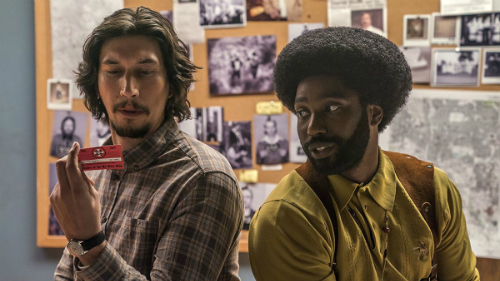
The acting also keeps the movie grounded in realism. John David Washington does a fabulous job leading this film. Ron Stallworth is just some guy who wanted to be a good police officer/ detective. He wasn’t necessarily trying to start a personal crusade against the KKK. But his investigation eventually evolved into something far more important that he may have initially realized. Washington portrays Stallworth as an easygoing yet complicated individual. By just trying to do the right thing, whether small or large in scale, Stallworth easily comes across as an empathetic character. John David Washington has had a few minor roles in other smaller films, but this is definitely a breakout performance. His career will be one to lookout for.
Adam Driver is also exceptional in this film. Driver portrays Flip Zimmerman, but he also acts as Ron Stallworth’s false persona. Since Zimmerman can pass as a non-Jewish white American, he is tasked with going undercover as “Stallworth”. This makes for some incredibly tense moments throughout the narrative. As Zimmerman goes undercover, his life is constantly put in danger. If he has one small slip up, if one person can tell Zimmerman and Stallworth aren’t the same person, or if anyone learns the truth about Zimmerman’s Jewish heritage, he’s a dead man. Driver’s performance of both Zimmerman and “Stallworth” was just excellent. Watching Zimmerman grow was incredibly engaging, and watching him put his life on the line was extremely suspenseful.
Some of the inherent suspense within BlacKkKlansman comes from the fact the film feels uncomfortably real. Yes, this story took place in the 1970s, but it still relates to issues that we see today. Institutional racism, police brutality, and minorities being unjustly shot, are all headlines that we can find in our local news. By shining a light on all of these problems, Lee is forcing the audience to question the progress that has been made. Some people may find Lee’s message to be too political or too preachy, but I thought he balanced the themes fairly well. BlacKkKlansman works well as a movie in its own right, but it will make you think.
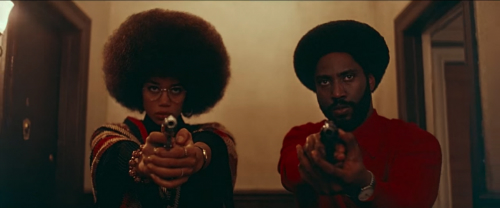
This is a movie that is filled with heavy themes. Though the trailers may have painted the film as a comedy, it is definitely a drama. At least the weighty subject matter is balanced out with moments of levity. There are plenty of jokes that work exceedingly well, but they don’t detract from the fact that this is a serious story. If anything, the humor makes the film feel more lifelike. People can find humor in even the darkest of situations, so the comedy in a drama like BlacKkKLansman makes the story feel all the more resonating. Then the harsh reality kicks back in. As you wait for that feel-good, crowd-pleasing finale to occur, you realize that it can’t. The real world issues that BlacKkKlansman addresses continue to exist to this day; a happy ending would diminish the whole point of the film. The comedy may help you get through the film, but the final moments will make you reflect upon the whole experience.
In 2016, Lionsgate Premiere released movie called Imperium, which focused on the subject matter Neo-Nazis. Though the film took place in the modern day, I thought it did an excellent job of portraying people within extremist organizations as just ordinary people. This is something I feel like BlacKkKlansman lacks. You can just clearly tell who is supposed to be a racist or a bigot without much context. But racism and bigotry is far more complicated than just how people appear to look. For example, Paul Walter Hauser’s character is basically just a buffoon. I’m not sure if the real person Hauser is portraying was actually that much of a fool, or if that was just the direction Spike Lee wanted him to take, but I had the same issue with his character in I, Tonya. Either way, the depiction of some of our antagonists just made the entire organization seem unnecessarily foolish.
It’s entirely possible that Lee was intentionally trying to portray the Klan as quite foolish, but I find it interesting that he gave the character of David Duke such depth. Yes, Duke can come across as silly and goofy as well, but his character kept “the organization” grounded. Though I fundamentally disagree with his rhetoric, I understand his philosophy. He would articulate his thoughts and explain his position like no one else in the movie could. And Topher Grace portrays Duke excellently. For a while, I felt as though Hollywood kept miscasting Topher Grace. He just felt out of place in films like Spider-Man 3, Predators, and Interstellar. But he absolutely kills it in BlacKkKlansman.
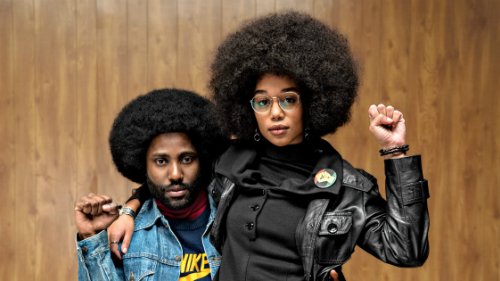
Likewise, Laura Harrier does a fantastic job of portraying Patrice Dumas. Dumas represents the voice of the black student union at Colorado Springs, and she crosses paths Stallworth during some of his undercover work. Though Harrier stands out here far more than her role in Spider-Man: Homecoming, I wish her character had more to do. Dumas challenges Stallworth and draws out the complexity of his character, but she doesn’t have much to do on her own. She’s an integral part of Stallworth’s story, but the focus on her own character gets lost. After spending so much time with Stallworth and Zimmerman as undercover agents, you almost forget that she is involved in the film. None of which is Harrier’s fault – she does an excellent job – it’s just a shame that a strong character like Dumas wasn’t fleshed out any further.
Yet, with a nearly two-and-a-half-hour runtime, Spike Lee wisely utilizes every second of his narrative. BlacKkKlansman is a tight film with a clear focus. As entertaining as the movie may be, it’s important to remember that these unbelievably crazy events actually took place. More importantly, it’s imperative to realize that many of the problems presented in the film still exist today. It’s no coincidence that BlacKkKlansman was released exactly one year after the Charlottesville riots. By simply using their rhetoric, extremist groups like the KKK have sanitized their violent image to appear more appealing to the masses. That’s an innately scary thought. But if we can recognize any form of racism when we see it, perhaps we can actually make some progress, and eventually put an end to it.





